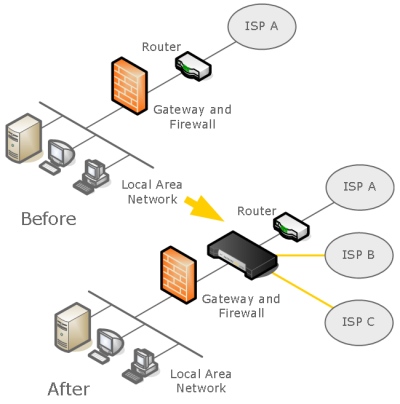Voice Quality and End-to-End Redundancy
Customer Premise
Convergence ensures that the customer’s LAN and WAN are optimized by making certain that the voice traffic (which is “real-time” traffic) has the highest priority from the phone to the switch. This is done with 802.1q VLAN tagging. When traffic is passed from the switch to the router, the traffic carries the same VLAN on the LAN side of the router. The router is set up with QoS and will tell the router that UDP traffic (voice traffic) has a higher priority as it leaves the Internet connection.
Dedicated Circuit
Even though our phones will work on any unmanaged internet connection to guarantee voice quality a dedicated Convergence data circuit must be used. With a Convergence Dedicated T-1, MPLS or Fiber Circuit we will prioritize the voice packets with the highest priority so that any data packets will not oversaturate the data circuit and cause unwanted voice quality issues.

Convergence Data Center
The Convergence Systems Data Center has 8 OC48′s blended 20Gbit/s, and load balanced from multiple carriers using diverse entry into the building to multiple AT&T CO’s. The Data Center has a route science load balancer that will intelligently find the quickest and best quality route, even if it’s a longer route with more hops. The Data Center has a 24/7 NOC, redundant CRAC cooling systems, humidity control, 24-hour battery backup with a generator that stores two weeks of diesel fuel.

System Architecture
When voice traffic comes in, it is routed by two redundant 6509 Cisco routers. The System is made up of a cluster of redundant Sun Servers that run call control software configured as user and trunking gateway systems. The dial tone is provided by dedicated SIP trunking coming from multiple fiber connections. All telephony applications run on a high available VMware environment tied into a SAN.